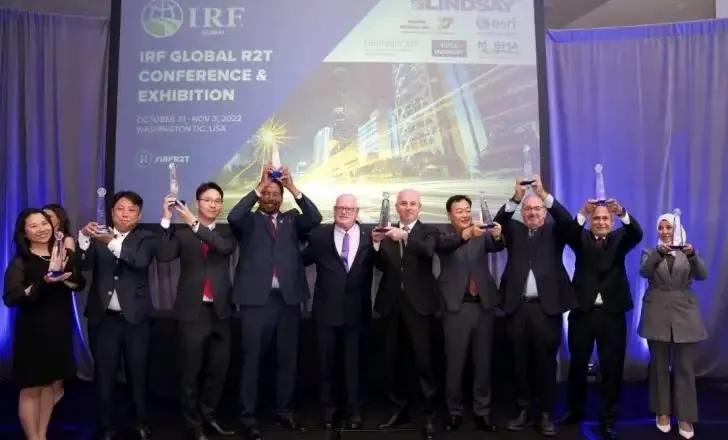Appearing at the 2015 ITS World Congress will be another high point in 2015 for German measurement technology specialist G. Lufft. The company has developed Marwis, a mobile sensor detecting road weather data such as the surface temperature, water film height, ice percentages, or friction from a moving vehicle. As a result, the device generates measurement rates of up to 100 measurements per second and transfers the values via Bluetooth in real time.
August 3, 2015
Read time: 2 mins

Appearing at the 2015 ITS World Congress will be another high point in 2015 for German measurement technology specialist G. 6478 Lufft. The company has developed Marwis, a mobile sensor detecting road weather data such as the surface temperature, water film height, ice percentages, or friction from a moving vehicle. As a result, the device generates measurement rates of up to 100 measurements per second and transfers the values via Bluetooth in real time.
Marwis is already an award-winning product. In the renowned German Industry Award 2015, Lufft not only won the ‘Optical Technologies’ category, but also became overall winner – against big players such as2069 Daimler, Zeiss and 311 Bosch.
“With a dense network enriched with easy to attach and maintain mobile sensors, virtually any weather observation can be improved effortless. With Marwis’ help, weather forecasts will be much more precise in the future,” says Lufft manager, Klaus Hirzel.
Winter services, manufacturers of navigation systems and vehicles, airports, road authorities as well as meteorologists are just some of the many target groups for Marwis as well as other Lufft sensors.
Marwis is already an award-winning product. In the renowned German Industry Award 2015, Lufft not only won the ‘Optical Technologies’ category, but also became overall winner – against big players such as
“With a dense network enriched with easy to attach and maintain mobile sensors, virtually any weather observation can be improved effortless. With Marwis’ help, weather forecasts will be much more precise in the future,” says Lufft manager, Klaus Hirzel.
Winter services, manufacturers of navigation systems and vehicles, airports, road authorities as well as meteorologists are just some of the many target groups for Marwis as well as other Lufft sensors.










